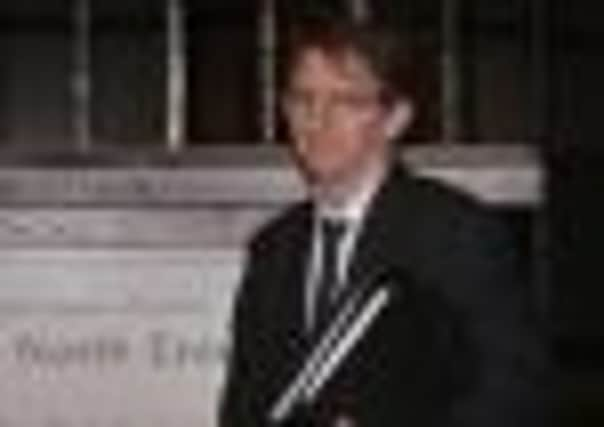Leveson inquiry: Lord issues defence of free press but says overhaul inevitable


Setting out his early thinking on the likely changes, Lord Leveson said the industry needed a regulatory body that was independent of government and effective in meeting the needs of the public.
“I would be very surprised if government regulation ever even entered my mind,” Lord Leveson said. “I’ve not committed myself to anything, but freedom of expression and freedom of the press are, to my mind, a fundamental bedrock of our society.
Advertisement
Hide AdAdvertisement
Hide Ad“But that is not to say that there cannot be some kind of independent mechanism that deals with complaints, regulation and the resolution of disputes that doesn’t involve the government, doesn’t involve the state but is in some way set up so that it can operate and can require people to go through that route.”
On the day that editors of national newspapers gave evidence to the inquiry, Will Lewis, who broke the MPs’ expenses scandal, said the story was “laced with risk” but he felt a duty to make it public. The former Daily Telegraph editor-in-chief, now an employee of News Corp, described his initial worries about exposing the abuses of parliamentary allowances.
He confirmed that the Tele-graph paid about £150,000 for a computer disk containing four years of information about MPs’ expenses, but insisted it was not stolen. The former editor told the inquiry his first concern on being offered the disk in 2009 was to ensure it was genuine, mindful of how the Sunday Times was tricked into publishing the fake Hitler diaries more than 25 years earlier. He consulted lawyers before entering negotiations to buy the data, the hearing at the Royal Courts of Justice in London was told.
Mr Lewis refused to confirm whether he was the source of a December 2010 BBC report based on a leak from a Telegraph investigation in which undercover reporters recorded Business Secretary Vince Cable saying he had “declared war” on Rupert Murdoch.
Current Telegraph editor Tony Gallagher told the inquiry that industry regulator the Press Complaints Commission (PCC) was “clearly not fit for purpose” in its present form. He called for its replacement to have powers to launch its own investigations.
Mr Gallagher said he was “hugely attracted” to the idea of a system of arbitration to resolve legal disputes before they go to court. He told the hearing: “I think if that arbitral service was low cost, it might be a great way of embracing the internet news providers, who at the moment remain outside the system, and if they realise that their access to that cheap and quick arbitral system would be contingent upon joining the new body, that would be wholly desirable.”
Mr Gallagher said more should be done to “increase the nature of pariah status” for publishers that refuse to sign up to the regulator. “If it was not enforceable by some kind of civil law, then I think the industry could and should do a great deal more to ensure that rogue publishers are given no access to the benefit enjoyed by everybody else,” he said.